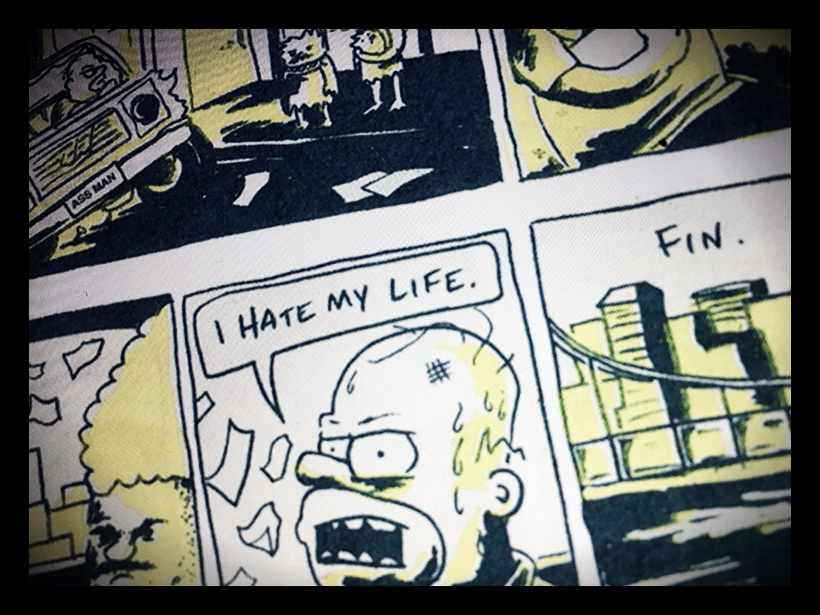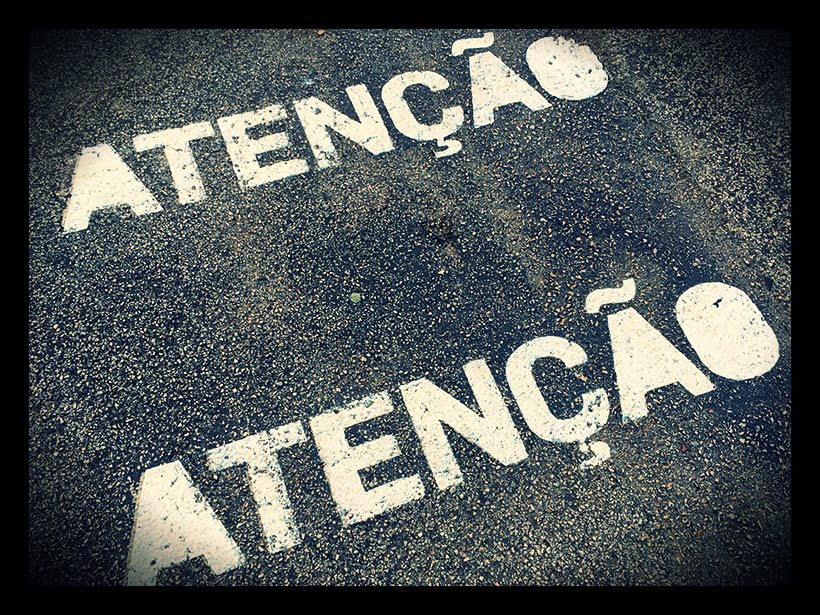é só punk
Just about anyone who has paid any attention to pop culture in the past 30 years can picture Bart Simpson. What few people know, though, is that Bart’s iconic hairline is lovingly lifted from cartoonist Gary Panter’s punk everyman character Jimbo and his spiky hair - meaning that one of America’s most beloved pop culture characters actually springs from a key figure in its groundbreaking punk scene.
in "Gary Panter, Matt Groening, and the Dual History of Punk and Comics" 11 dez 2017
Acabados de tratar sobre este livro e novo excerto onde a autora traça a relação BD / punk — um must nos dias que correm, certamente. Sobretudo focado em Gary Panter e Matt Groening e sem uma profundidade de maior à vossa consideração, combina entre citações nomes mais ou menos óbvios com algumas referências out of tha blue. Exemplos para as aranhas do Google nos indexarem entre as companhias certas: Ramones et Sex Pistols, John Holmstrom, Lynda Barry, Jaime & Gilbert Hernandez, Neil Gaiman, William Shakespeare e William S. Burroughs, e Guy Lawley porque sim.
Antes, talvez de outras companhias já que anda tudo ligado mesmo.
Estivemos há pouco tempo atrás com o Bartkira no artsy-farsy, ontem lemos umas tolices em punk sobre zines e fanzines e perzines por velhos do restelo, e no mesmo dia um apanhado por um fanático de zines por fãs dos ditos de Springfield.
O "zine" e o "perzine", ou seja a lógica amadora aliada a vozes individuais (logo "fãs" de "nada", cai o "fan" e fica o "zine") tem inicio nos anos 70 e lá foi até 2000. Sempre "dois mil" porque é quando a 'net impõe a sua lógica na cultura e seu acesso no mundo físico.
in "Burn Collector #16" 12 dez 2017
Most people agree that there hasn’t been more than one good episode in a season since the mid 2000s. There is, though, a lot of Springfield-related creativity happening—it’s just that none of it is coming from the show’s creators. Rather, there are artists and publishers bringing their own imitable style to the Simpson family through a whole array of self-published publications.
in "The True Spirit of 'The Simpsons' Lives On in These Bootleg Zines" 12 dez 2017
A ler: alguns zines mereciam ser bootlegados por cá.
 in The City of New York vs. Hammer Sonpsims por Scott Carr
in The City of New York vs. Hammer Sonpsims por Scott Carr The idea was to question the relationship between "high" culture and "low" culture. It was a kind of irony, making a link between Roland Barthes and Bart Simpson.
in "The True Spirit of 'The Simpsons' Lives On in These Bootleg Zines" 12 dez 2017
Boa ideia: fizemos essa aqui. Voltando aos punx, "está tudo ligado", dizíamos. "Why Comics", Hillary Chute, Gary Panter:
Panter’s graphic sensibility came to substantially define the visual culture of punk, from band flyers, record sleeves and cover art, to T-shirts and posters, comics, books, and fanzines. Panter is the innovator of punk comics; people sometimes call him the king or the godfather of punk comics.
in "Gary Panter, Matt Groening, and the Dual History of Punk and Comics" 11 dez 2017
A sua relação ao punk — recordamos: a ser inventado nesse mesmo momento — resulta do lado artsy, versus politics. Um feliz excerto da autora consegue enrolar na descrição aqueles nossos infelizes habituais:
Panter explains, "I’d seen something in the paper about punks, and I thought, these are like creepy little neo-Nazis, you know—what a bunch of jerks. But mostly it was people out of art school who wanted to make something happen."
in "Gary Panter, Matt Groening, and the Dual History of Punk and Comics" 11 dez 2017
Punk, punk:
"Punk" was a term for disrepute and outsiderness, resignified in the 1970s as an expressive, antiestablishment rejection of the "expert" and the corporate - [a] movement characterized by short, sped-up rock songs and anti-conformism.
The punk scene that launched cartoonists Panter and Groening was part of a larger punk movement that hit America, and the UK, in the mid-to-late 1970s. Both political and aesthetic, the punk movement, which often registered as a visceral or even violent response to mainstream pop culture, encouraged people to create their own culture across many different forms of production. This includes, most famously, the music that came to be known as punk rock. Punk culture often consolidated around bands, along with the art and graphic design that went into their promotion - as well as the fanzines that articulated their ideas and goals. The "do-it-yourself" ethic is the defining feature of punk culture and production.
in "Gary Panter, Matt Groening, and the Dual History of Punk and Comics" 11 dez 2017
Com comics e fanzines porque de repente não se consegue escrever a história da BD sem estes — e nem o spandex escapa.
Fanzines link punk (a historical movement and ongoing system of values that prizes independence at the level of creation) and comics (an art form conventionally designed for print circulation) directly. Zines, as today they are commonly known, are independently published periodicals on a range of topics. The roots of zines and comics run deep together: teenage writer/artist team Jerry Siegel and Joe Shuster published the earliest incarnation of Superman in 1933 in their very own mimeographed fanzine Science Fiction: The Advance Guard of Future Civilization.
And zines, with their DIY ethic, are a cornerstone of punk philosophy and its music specifically: they represent independence from the corporate, the building of community through the circulation and exchange of knowledge, and a forum for promoting bands. One sees in punk zines just how key the frisson between words and images that motors comics is to the punk aesthetic.
in "Gary Panter, Matt Groening, and the Dual History of Punk and Comics" 11 dez 2017
Voltando ao Matt G, "1977, the year Panter and Groening both moved to the city."
The two met and became fast friends, plotting how to make art people would pay attention to. Groening recalls how they would "scrape coins out of the carpet of our crummy little apartments and split burgers and then scheme about how to invade pop culture."
in "Gary Panter, Matt Groening, and the Dual History of Punk and Comics" 11 dez 2017
$$$ e pop-culture. Que, sabemos, só é popular quando das massas — pun intended.
Groening and Panter’s career trajectories demonstrate punk’s role in contemporary comics — and also how the graphic novel today trades on so many of its values, including an emphasis on immediacy and the handmade, for what is now a mainstream audience.
in "Gary Panter, Matt Groening, and the Dual History of Punk and Comics" 11 dez 2017
Falaremos desses trade-values no próximo post.
Terminamos com cite que cobre punk, comix, DIY zines & $$$, e com ele nos despedimos.
"Sometimes the punks would tear up copies, but sometimes I sold them."
in "Gary Panter, Matt Groening, and the Dual History of Punk and Comics" 11 dez 2017
A verdadeira tragédia desse excerto depende em que metade a encontras.

O que nos recorda: demasiados punks para a esquerda e para a direita hoje em dia. Punks, a fazer fé, aos pontapés. Punks que caem do céu como perdigotos in ur face... Já renegamos os comics, hoje queremos distância ao "punk", os artsy-f dão-lhe mais uso que nós e despacham-no com(o) estilo. Guardem-no,nós ficamo-nos por vândalos e hooligans.
